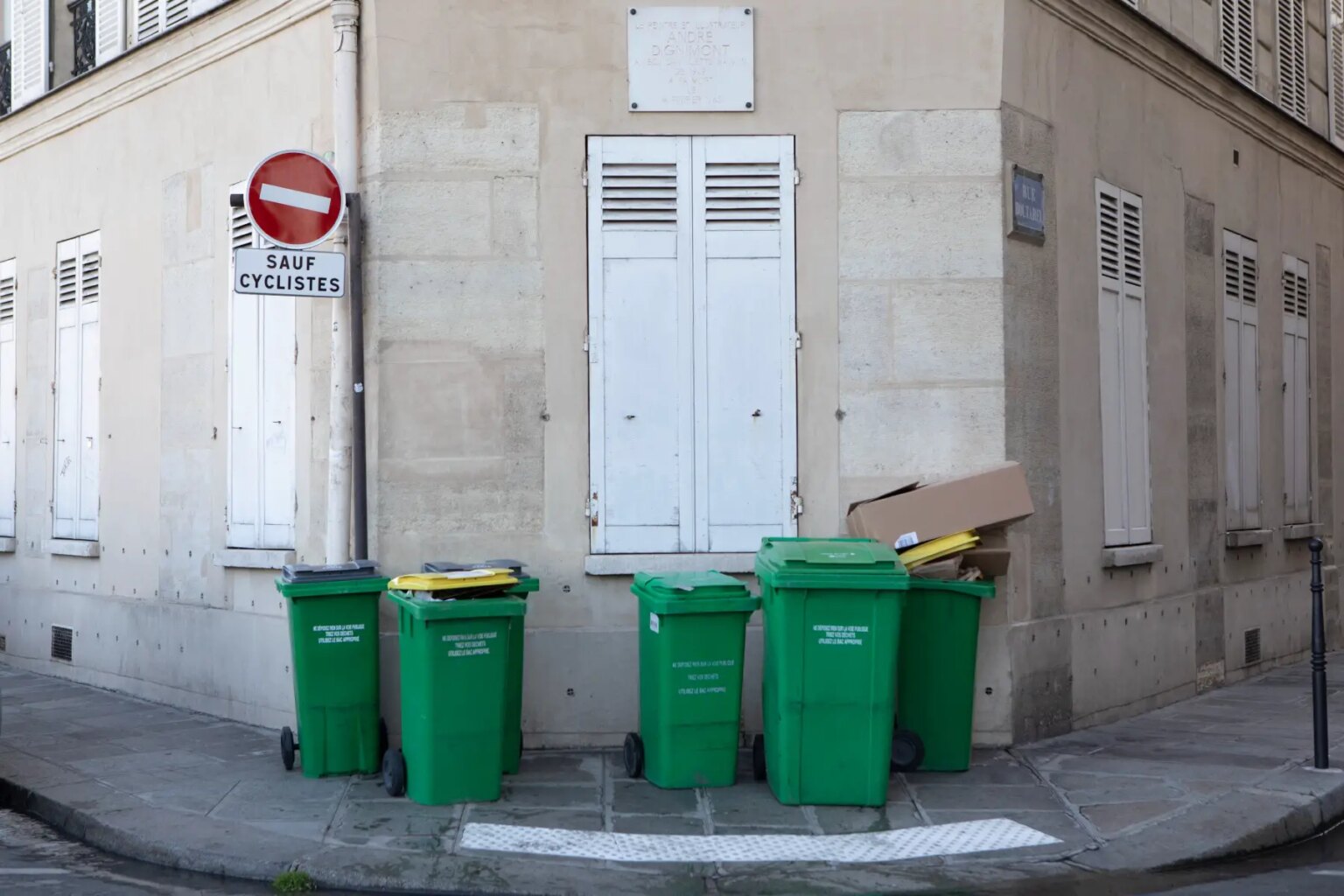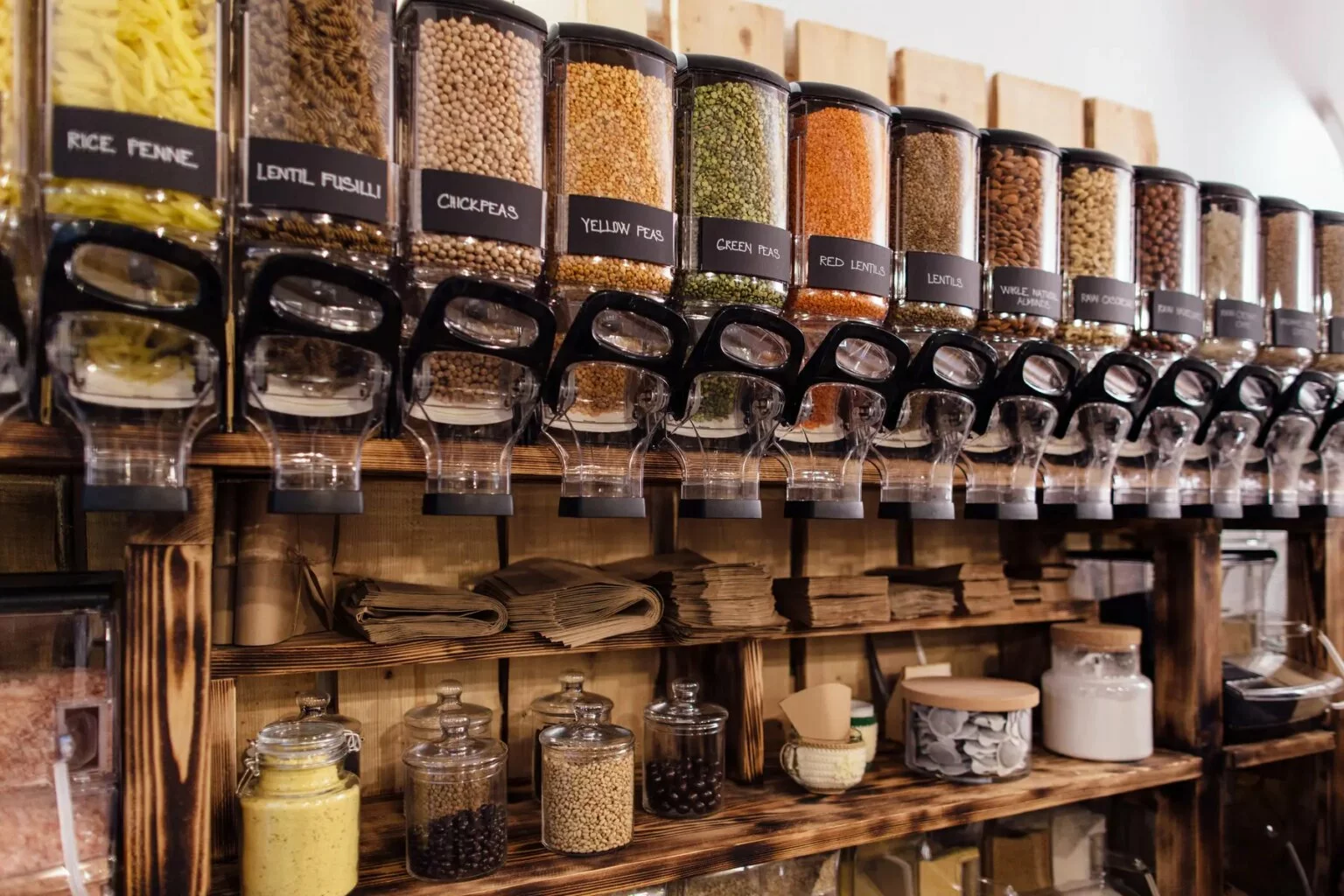If you’re an expat settling into your new home, you’ll undeniably go through some rites of passage. Whether you’re setting up your Wi-Fi or buying furniture, some experiences are essential to settle into your new lifestyle. Recycling is something you’ll have to deal with as soon as you arrive in France and, since the environment is a growing concern, it’s important to do it right.
To learn how to sort your waste the French way, read on to find out about the following issues:
The recycling system in France
About 546 kilograms of waste are produced per person every year in France, which is roughly in line with the European average. However, according to research from 2019, France recycles less than one third of plastic. In light of this, the country is buckling down to improve its recycling laws to become more sustainable.
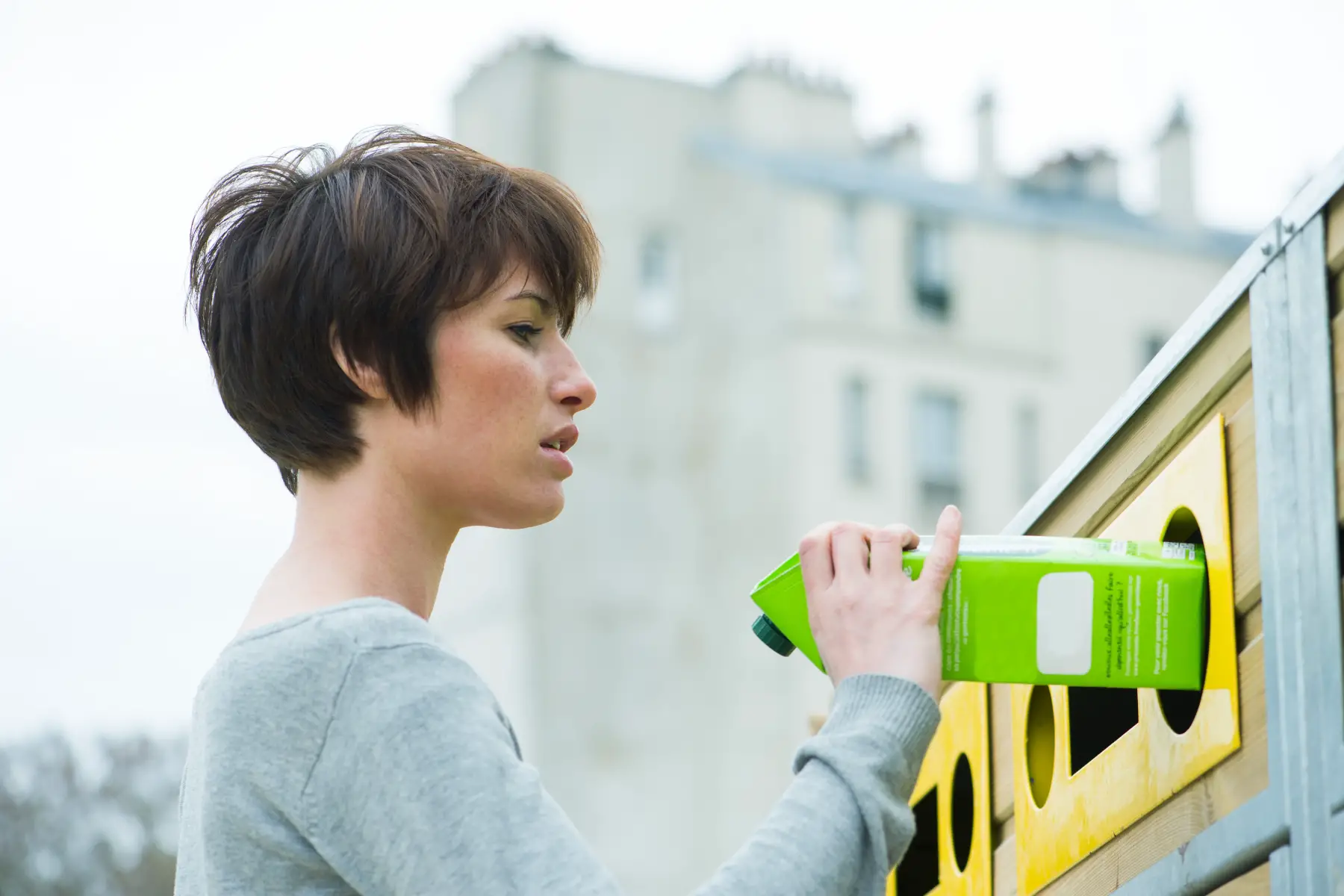
Among their most recent recycling initiatives, France has banned plastic packaging on most fruit and vegetables in supermarkets and will rule out single-use plastics entirely by 2040. To learn more about how France is reducing its waste, visit the French government’s website.
Once your garbage has been collected, it will either be put in one of France’s 4,614 landfills, burned in an incinerator, or recycled.
How to recycle in France
Before waste collection, you need to separate your different materials according to the correct container. If you are unsure of recycling certain materials, check out the government’s waste disposal directory.
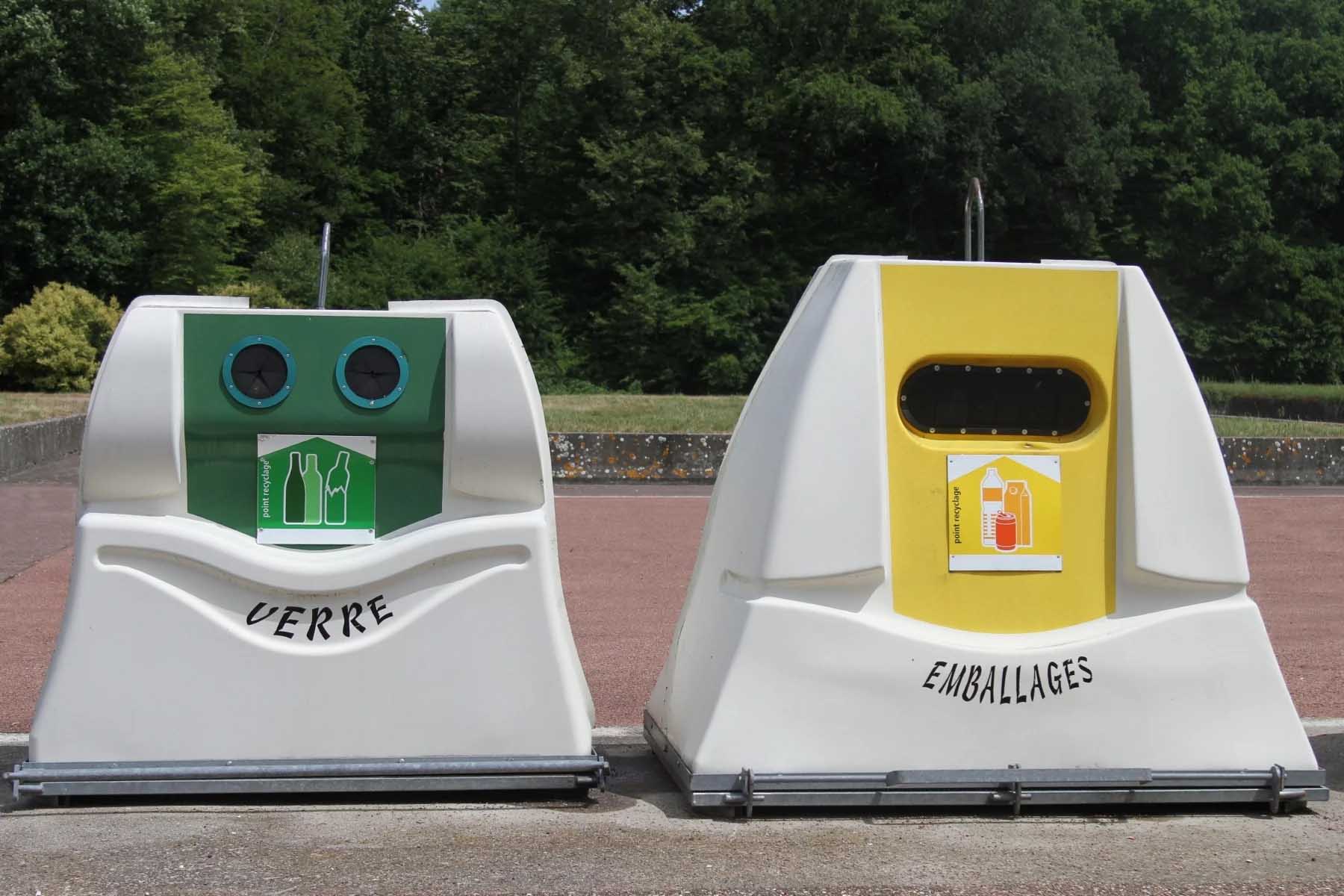
Make sure to pay attention to the symbols on the products you buy, which give you valuable information about recycling an item. The most common symbol for recycling is the Mobius loop (L’anneau de Möbius, a triangular ring made from three arrows), which means that an item is recyclable.
Recycling paper in France
France takes great care when recycling its paper (papier), so much so that it recycles 60.5% of it. You can deposit your paper in a bin with a yellow top. These bins hold mixed recyclable waste and are used widely throughout France. You can recycle the following here:
- Newspapers and magazines
- Advertisements and flyers
- Books
- Envelopes
Collection happens twice a week but may differ depending on your municipality. You can throw papers with staples into your yellow bin, but do not throw away soiled napkins or absorbent papers here, as they belong with your compost waste. At the recycling plant, they will treat your paper and make it into new sheets or cardboard.
Recycling plastic in France
Along with paper, you can recycle your plastic (plastique) in your yellow mixed recycling bin (for packaging – emballages recyclables). Recyclable plastic items include water bottles, shampoo bottles, and plastic drinking cups.
When recycling your plastic, pay attention to the classification indicated on your item. This is a number between one and seven in between three arrows, typically on the bottom of the package. If this number is a one, two, or five, you can recycle it. However, if your item has a three, four, or six, you usually cannot recycle it. If your item has a seven, check if you can recycle your item since this group includes recyclable and non-recyclable plastics.
Plastic waste collection generally takes place once or twice a week. If your plastic item is empty, there is no need to rinse it before throwing it away. You can also leave the lids of plastic bottles screwed on before tossing them out, although you can save space by crushing them first. During the recycling process, plastics are separated, cleaned, and used to make new products.
Recycling glass in France
You must put glass (verre) in its own bin with a white top. As with the yellow bins, you can get your white bin from your local city hall free of charge. Otherwise, you can take your glass waste to your local recycling center or communal bins. Collection of glass waste typically occurs once a week but may differ based on where you live.
You can recycle both intact bottles and shattered glass in any color (e.g., brown, green, clear) – you usually do not need to remove the label or lid, but check what the rules are in your local area. As with plastic, if your glass item is empty, you do not need to rinse it before throwing it out. You cannot, however, recycle glass with paint or foil on it, as it is not suitable for redistribution. At the recycling plant, labels and caps are removed, and the glass is crushed and melted to make new items.
Recycling metal in France
You can recycle metal (métal) – including steel and aluminum – with plastic and paper in your yellow bin. Again, collection usually occurs twice a week but may differ per municipality. Metal waste includes cans, aerosols, aluminum trays, and metal lids. Unless your item is empty, rinse out your metal can with water before recycling it. Steel and aluminum are separated in sorting centers, after which they can be crushed and melted down, ready for new production.
Recycling cardboard in France
Cardboard (carton) is also recycled in the yellow bin with your other mixed recyclables and should be flattened before throwing away. If your cardboard is too big to throw away at home, you can recycle it at your local communal bins or a recycling center. If your cardboard has wax or a coating, you must throw it away with non-recyclable waste. When cardboard is recycled, it is pulped and used make new paper and cardboard products.
Recycling clothes and clothing materials in France
Although you may be itching to get rid of your unwanted clothes, you should not throw them in the recycling bins. Instead, you can drop off your clothes, shoes, underwear, and linen at a collection point, typically in the same area as your communal recycling containers. There are around 44,000 textile collection points located around France. Find your closest one on refashion.fr.
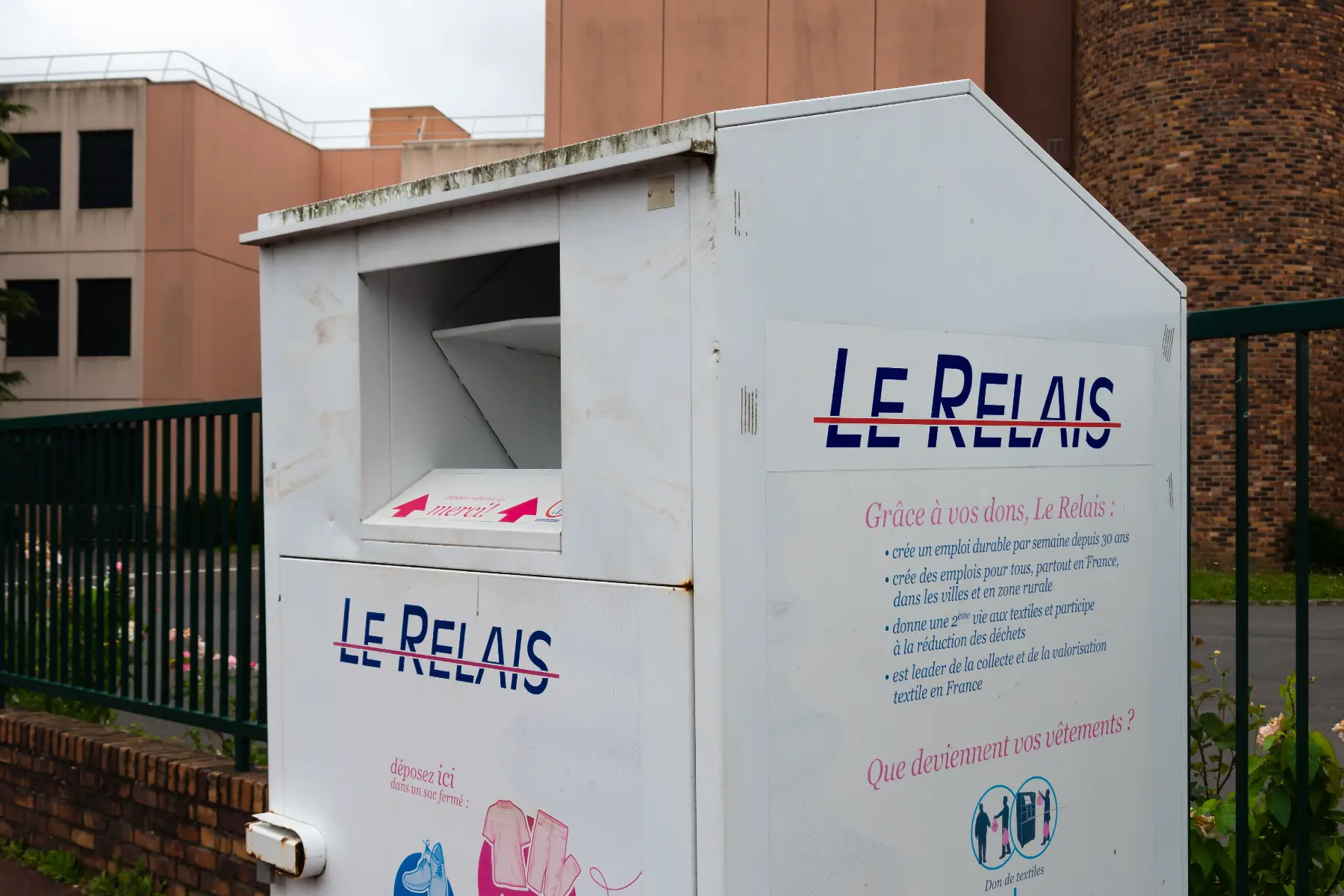
Before you go ahead and donate your items, ensure that your clothes are dry and clean. If they are worn out or have holes, they are still fit for donation. Shoes, on the other hand, must be in a pair. If your textiles and shoes have paint on them, they cannot be donated and must go in your non-recyclable waste. Depending on the state of your items, they will either receive a new life as second-hand garments, cloths, insulation, or other materials. Otherwise, they will be incinerated or buried with other waste.
Once you have all your textiles, place them all together in a bag and leave them at the collection point. Collection occurs regularly and varies depending on your area.
Recycling other household items in France
Alongside the materials above, there are plenty of other items you can recycle in France. Here are the most common ones:
- Batteries: You can find battery collection points near communal recycling bins, supermarkets, or schools, where you can recycle both rechargeable and non-rechargeable batteries. The metal can be recovered from batteries to make everyday objects or new batteries.
- Mobile phones: Supermarkets and recycling centers have collection points for old mobiles, including smartphones. You can also mail your phone to jedonnemontelephone.fr, an NGO which recycles old, new, and unused devices. When your smartphone is collected, it is then dismantled to source reusable parts.
- Household appliances: Looking to get rid of your bulky fridge or tiny toaster? France’s new circular economy law enables citizens to return a used appliance to their distributor when buying a new equivalent of the same item.
If you are still unsure what waste is recyclable in your commune, you can look up the recycling information for different materials.
Tips for recycling at home
Alongside recycling your waste carefully, there are even more actions you can take to live a healthier, more sustainable lifestyle that will benefit yourself and your community. These include:
- Reduce your use: Less waste means less time spent recycling. Why not take your Tupperware or a reusable bag to the supermarket to save on excess waste? Or buy reusable make-up pads to avoid throwing out cotton rounds?
- Opt for sustainable materials: Some household essentials are available in biodegradable materials, which are eco-friendly and affordable. Some options include bamboo toothbrushes, bamboo dishcloths, and biodegradable diapers.
- Do your research: When you move to a new commune, familiarize yourself with their recycling rules. Educate yourself on your local recycling system and consult with your city council.
- Pack your lunch: Meal prepping before work or school can help you cut down on extra food packaging when buying lunch on the go.
Composting in France
Composting food waste
After you’ve finished making a traditional French meal at home, it’s time to get rid of your vegetable peelings, stalks, and eggshells. Food waste makes up one-third of household waste in France and is kept separately from recyclable materials. For this reason, you must throw your food waste in its own bin, which is brown. You can get these free of charge from your local city hall.
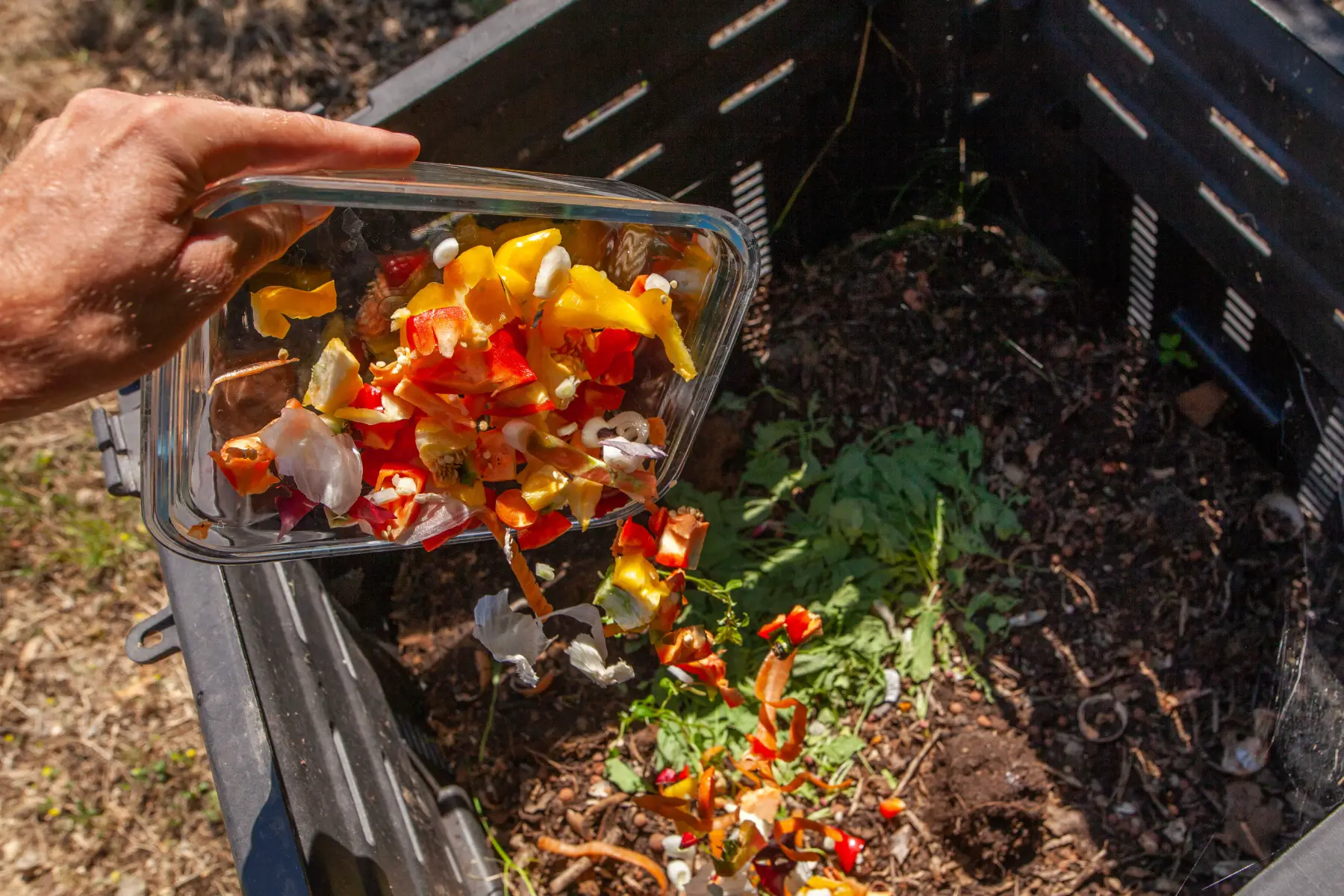
Food waste includes meal leftovers, eggshells, absorbent napkins, and fruit and vegetable peels. Collection happens at least once a week across France via household collection or drop-off in a communal zone. Check with your local city hall to see when your food waste collection is.
Composting garden waste
Any green waste, including grass trimmings, dead leaves, and other debris from your garden, is placed with your food waste in the brown bin. Before throwing them away, you may opt to use your green waste to make compost for your own for your garden. Otherwise, once thrown out, collection of your green waste occurs in line with the schedule of your municipality.
Do note that it is forbidden to burn your green waste in open air or with a garden incinerator. You could risk a fine of €450.
Garbage collection in France
Now that you know what to do with your recyclables and your compost, what about the rest of your trash? You can place your garbage in a green bin or black bin liner and leave it on your doorstop in line with your municipality’s rules and timings. Otherwise, you can throw it away in a public drop off-zone. Your city hall can supply you with your green bin free of charge.
Waste collection varies depending on where you live in France. Generally, the municipality or city hall (services municipaux) is in charge of waste collection. Garbage collection times vary per municipality, so check with your city hall to see when your collection is. You can also download a trash collection app, like Uzer, to easily access trash collection times.
You can get your different bins free of charge from your city hall. However, if you’d rather choose your own bin to match your interior, you can buy one from a homeware store.
If you live in an apartment block, you can usually find communal bins in a yard or in a designated area on the property. Those living outside the big cities may need to recycle their waste in a more central location, as household collection may not be an option. Check with your city hall if you are unsure where to deposit your waste.
Waste collection takes place at different times, according to your location. You can find out about your waste collection schedule by checking with your town hall or on your town hall’s website.
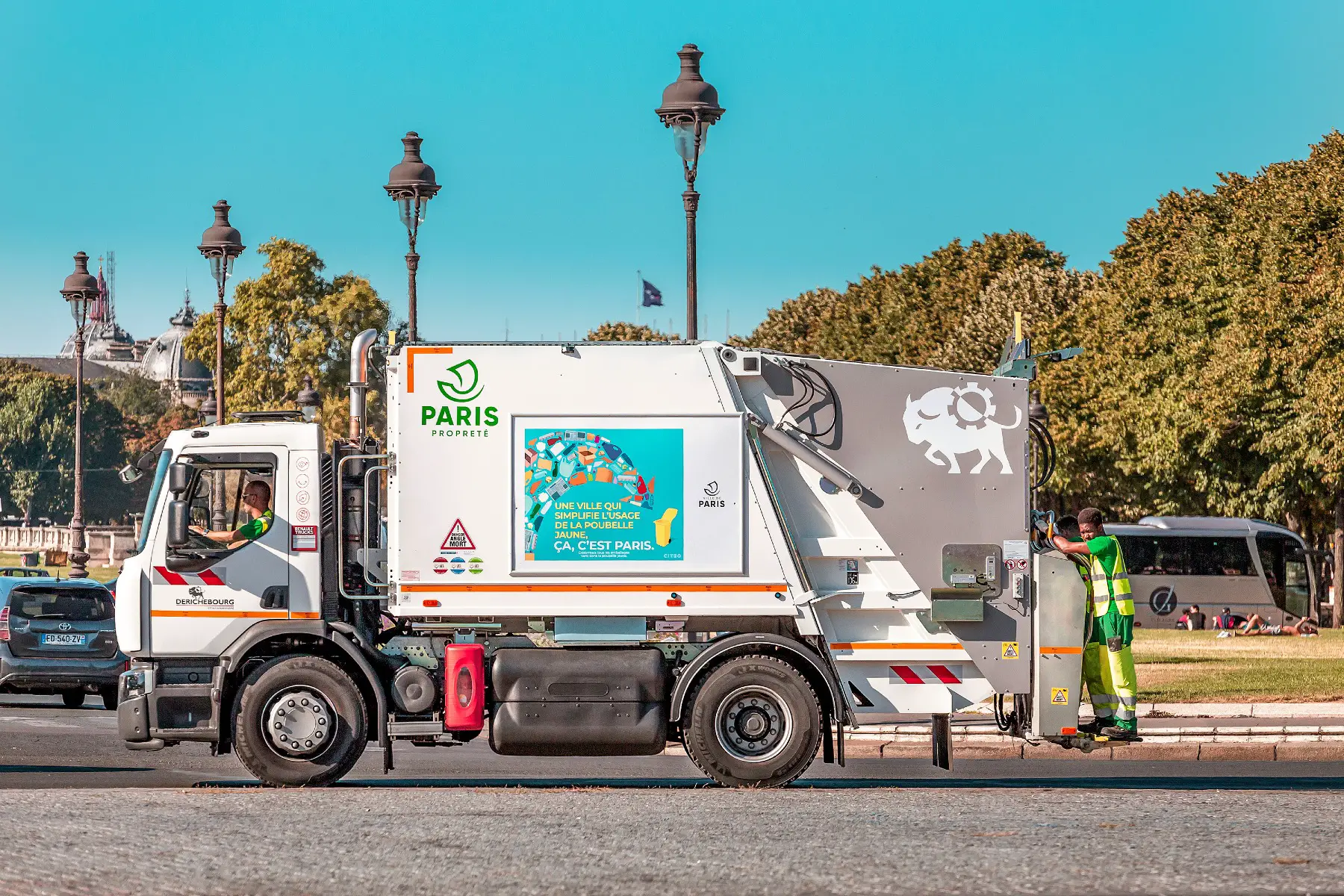
Waste collection is paid for by Taxe d’Enlèvement des Ordures Ménagères (TEOM) – a local tax that all homeowners must pay. This is part of your taxe foncière (property tax) and has the letters TEOM on your tax bill.
Be aware that your municipality’s waste regulations could be strict, so it is important to dispose of your trash properly or you risk a fine.
Penalties for illegally dumping waste or recycling in France
If you are caught littering in public, you will receive a fine ranging from €135 to a staggering €1,500, depending on the offense and how quickly you repay the sum. On the other hand, if you do not comply with the waste rules of your municipality (date, time, sorting), you risk a fine starting from €35. You must pay these fines to your local municipality. For more information, see the government’s page on waste fines.
Useful resources
- Ministry of Ecological Transition – France’s ecological policies in one place
- République Française – Information on recycling
- Ville de Paris – Waste collection in Paris
